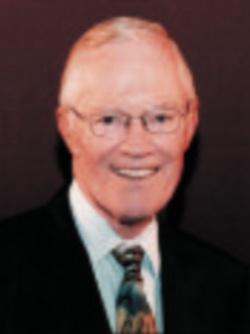In Search of the Eternal Buzz
Today's youth are often seeking the fun that never ends, just like their parents. But the fun never lasts, and their search for true happiness feels like grasping at smoke. Sadly, many discover that the repercussions of their search do last...
When I was a teenager, my friends and I thought "fun" was a synonym for "happiness." The more fun you had, the happier you would be. The longer you could prolong the fun, the greater your happiness. Of course, there was always an impediment to attaining this happiness—money. Money could pay for that trip to Pacific Ocean Park, where you could ride the biggest roller coaster for as long as you wanted. Money could provide an evening at the movies, milkshakes and French fries. It could pay for the coolest clothes and the hottest car. It might even help a young man win the heart of that "unattainable" girl, the one no one pursues because she seems too beautiful, too smart, too perfect, too everything—in short, too out of reach. But what if you could reach her? Surely that would bring you all the fun and all the thrills you could desire. Surely that would give you all the happiness you could handle. That would be the "eternal buzz."
Today's youth are often seeking the fun that never ends, just like their parents. But the fun never lasts, and their search for true happiness feels like grasping at smoke. Sadly, many discover that the repercussions of their search do last—and last far longer than their fleeting attempts to find happiness in sex, drugs and all sorts of entertainment.
What would you do if you had all the money you needed to pursue the "eternal buzz"? What if you could eat anything you wanted, whenever you wanted it. What if you could have all the latest video games, and play them on the biggest and best television screen ever made? What if you could purchase any car you wanted? What if no one and nothing stood in the way of your having any and all of the thrills you could imagine, for as long as you could imagine? Do you think this would bring you true happiness?
Some 3,000 years ago, one man had everything he needed to pursue the "eternal buzz." His life can be a powerful lesson for us, if we are willing to learn from it. That man was King Solomon, the wealthiest man ever to rule Israel. He wrote about his quest for happiness, in a book that is now part of the Bible. In that book, he described his quest for happiness:
"I searched in my heart how to gratify my flesh with wine.… I made my works great .… I had great possessions .… I also gathered for myself silver and gold and the special treasures of kings.… Whatever my eyes desired I did not keep from them. I did not withhold my heart from any pleasure…" (Ecclesiastes 2:3–4, 7–8, 10).
Solomon certainly had every pleasure he could imagine! He had 700 wives and 300 concubines (wives of a lesser order). We can be certain that these were the most beautiful women in Israel and all the surrounding nations (1 Kings 11:3, 8). Solomon knew that no one had it better, and he observed, "For who can eat, or who can have enjoyment, more than I?" (Ecclesiastes 2:25).
The king was conducting a grand experiment, giving himself over to every imaginable thrill for as long as he wished, then considering what it did for him. How did he feel at the end of the day? Had he truly been happy? Was he fulfilled or empty? You might be surprised by Solomon's answer: "Then I looked on all the works that my hands had done and on the labor in which I had toiled; And indeed all was vanity and grasping for the wind. There was no profit under the sun… Therefore I hated life because the work that was done under the sun was distressing to me, for all is vanity and grasping for the wind" (Ecclesiastes 2:11, 17).
Solomon had summoned the best comedians and found fun in laughter. But in the end, it did not fulfill. Neither did the best musicians, the most and the best alcohol or the biggest building projects. Neither did all his wives and the privileges of marriage. No matter how Solomon tried to grasp at happiness, it did not last. There was no eternal buzz!
Sadly, few know about Solomon's experiment and even fewer learn from it. Instead, they search for the thrill that will last and will satisfy—but none ever does. Of course, some thrills may be fun. But soon the thrill is gone, and we must return to the mundane activity of our lives.
In my work with young people, I enjoy seeing their idealism. Most young people like to think about philosophical questions like the ones Solomon explored. They are searching for truth and meaning. They want to make the world a better place, and to participate in worthy causes. They want to know what happiness is, to understand what makes life worth living and to discover the purpose of life.
It gives me great fulfillment when I see young people choose wisely, doing things right and setting themselves on the track toward lasting happiness and success. Sometimes this means making better choices than their parents made, and often it means making better choices than their peers. But it can be done! Yes, I am a real optimist when it comes to young people; so was Solomon, and so is God!
Solomon wrote Ecclesiastes so that some would learn from him, do it right and find the true "eternal buzz." "The Preacher [Solomon] sought to find acceptable words; and what was written was upright—words of truth. The words of the wise are like goads [prods], and the words of scholars are like well-driven nails, given by one Shepherd. And further, my son, be admonished by these" (Ecclesiastes 12:10–12).
The lesson of Ecclesiastes is that we can find true and lasting satisfaction not in the things we do, but rather in the way we live. Solomon counseled: "Rejoice, O young man, in your youth, and let your heart cheer you in the days of your youth; walk in the ways of your heart, and in the sight of your eyes; but know that for all these God will bring you into judgment. Therefore remove sorrow from your heart, and put away evil from your flesh, for childhood and youth are vanity.… Remember now your Creator in the days of your youth…" (Ecclesiastes 11:9–10; 12:1).
In short, Solomon learned that while we can certainly pursue "good, clean fun," this is not an end in itself. We should always remember that there is a God who has given us His law, which shows us how to have fun today that will still be fun tomorrow. The final two verses of Ecclesiastes summarize what Solomon had learned: "Let us hear the conclusion of the whole matter: Fear God and keep His commandments, for this is man's all. For God will bring every work into judgment, including every secret thing, whether good or evil" (Ecclesiastes 12:12–14). Solomon's search for the eternal buzz should be instructive to all of us—young and old alike—as we search for the true eternal happiness that will never leave us disappointed.






